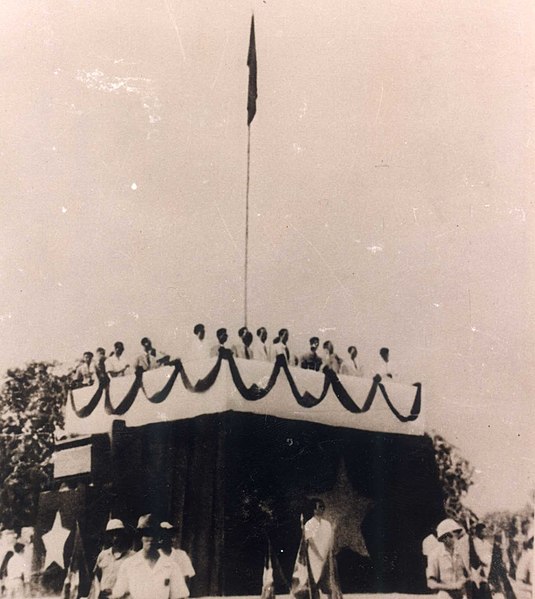The economy of Vietnam is a developing mixed socialist-oriented market economy. It is the 35th-largest economy in the world by nominal gross domestic product (GDP) and the 26th-largest economy in the world by purchasing power parity (PPP). It is a lower-middle income country with a low cost of living. Vietnam is a member of the Asia-Pacific Economic Cooperation, the Association of Southeast Asian Nations and the World Trade Organization.
Ho Chi Minh City, the economic capital of Vietnam
Rice terraces in Sa Pa. Vietnam is the world's third-largest rice exporter.
Vietnam is the world's second-largest coffee producer and exporter.
Vietnam is the world's largest cashew exporter.
North Vietnam, officially the Democratic Republic of Vietnam, was a socialist state in Southeast Asia that existed from 1945 to 1976, with formal sovereignty being fully recognized in 1954. A member of the Eastern Bloc, it opposed the French-supported State of Vietnam and later the Western-allied Republic of Vietnam. North Vietnam emerged victorious over South Vietnam in 1975 and ceased to exist the following year when it unified with the south to become the current Socialist Republic of Vietnam.
The North Vietnamese government in 1946.
Ho Chi Minh declaring independence at Ba Dinh Square on September 2nd, 1945
A Viet Minh rally outside the Hanoi Opera House during the August Revolution, 1945.
Ho Chi Minh (seated, right) with Tôn Đức Thắng (seated, left) and other DRV leaders in a liberated zone of northern Vietnam during the First Indochina War.








